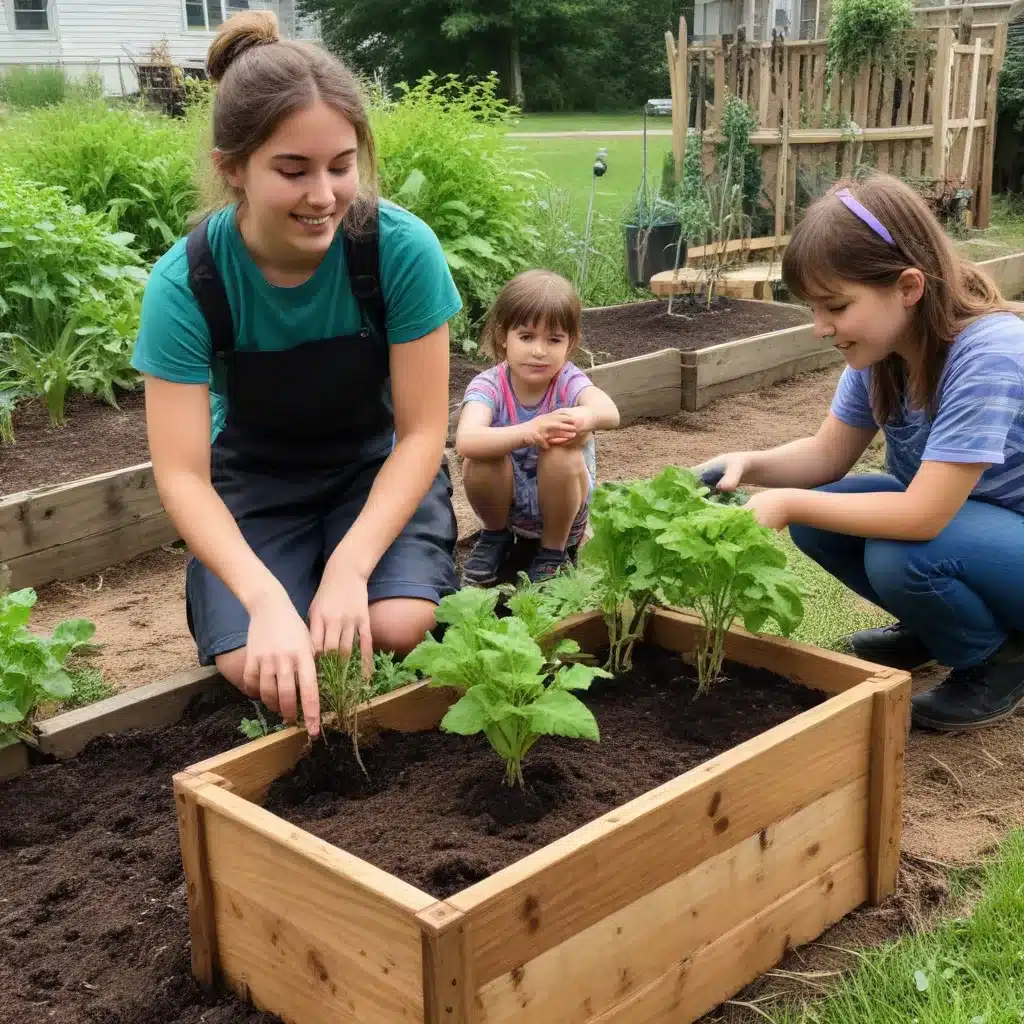
Cultivating a Sustainable Future in the Classroom
At Stanley Park High School, we believe in empowering our students to be active agents of change in their community. One of the ways we’re doing this is through our student-led gardening and composting initiatives, which not only teach valuable skills but also foster a deeper connection to the natural world.
Nurturing a Passion for Gardening
Gardening is more than just planting seeds and watching them grow – it’s a holistic learning experience that encompasses science, math, environmental stewardship, and community engagement. That’s why we’ve made it a core part of our curriculum, allowing students to take the lead in designing, building, and maintaining our school’s garden.
Through our partnership with the Green Heart Project, our students have had the opportunity to get their hands dirty and learn firsthand about the wonders of plant life. From understanding the basic needs of plants to exploring the intricate web of life in the soil, our young gardeners are developing a deep appreciation for the natural world around them.
One of the standout projects has been the creation of our school’s very own urban farm. It started with just a few raised beds in the schoolyard, but has now grown to encompass over 12,000 square feet of garden space, including a vegetable garden, a native species and herb garden, and a thriving fruit orchard.
“The urban farm has become an organic example of an important life lesson – through hard work, teamwork, and respect for the process, you can literally bear the fruits of your labor,” shares Jesse, the Executive Director of the Green Heart Project.
This hands-on approach to learning has been a resounding success, as our students have not only learned valuable gardening skills but have also developed a sense of ownership and pride in their work. They’ve discovered the joy of watching their seedlings sprout and grow, and the satisfaction of harvesting the fruits of their labor.
But it’s not just the gardening itself that’s making an impact. The process of collaborating with their peers, problem-solving challenges, and communicating their ideas has helped our students develop important life skills that will serve them well beyond the classroom.
Closing the Loop with Composting
Alongside our gardening initiatives, we’ve also introduced a comprehensive composting program at Stanley Park High School. This not only helps us reduce waste and support a more sustainable school environment, but it also provides an invaluable learning opportunity for our students.
“The composting initiative at Mitchell Elementary School has led to the growth of an unexpected learning space,” explains the EdSurge article. “With students and volunteers working in the garden together, a mentorship was fostered, and it was soon realized that the students were growing personally and socially, just as the vegetables were growing big in the garden.”
Our students have taken the lead in setting up and maintaining our composting system, learning about the science behind decomposition and the role of microorganisms in the process. They’ve also explored the importance of reducing food waste and the ways in which composting can contribute to a more sustainable food system.
One of the highlights of our composting program is the way it connects to our gardening efforts. The nutrient-rich compost produced in our school is then used to enrich the soil in our garden, creating a closed-loop system that demonstrates the principles of sustainability in action.
Empowering Student Leadership
At the heart of our gardening and composting initiatives are our students. We firmly believe that by empowering them to take the lead, we’re not only teaching valuable skills but also fostering a sense of agency and ownership that will serve them well throughout their lives.
“The volunteers became ‘Green Heart Buddies’ – mentors students could count on and learn with as they worked together in the garden,” explains the EdSurge article. “And it is from this model in volunteer-assisted service-learning that the Green Heart Project’s mission and educational program was founded.”
Our students have seized this opportunity with enthusiasm, taking on roles such as garden managers, composting coordinators, and community outreach ambassadors. They’ve organized workshops, planned events, and even collaborated with local organizations to expand the reach of our programs.
One such student, Xavier, joined the Green Heart Project’s summer internship program and has since taken on various roles, including serving as a Crew Leader. “Throughout his time with Green Heart, Xavier has held various positions, developed a strong foundation in farming, and has connected with the communities around him,” shares the Green Heart Project team.
By empowering our students to lead these initiatives, we’re not only teaching them valuable skills but also helping them develop a deep sense of agency and responsibility. They’re not just passive participants – they’re active agents of change, shaping the future of our school and community.
Cultivating a Sustainable Future
At Stanley Park High School, our gardening and composting projects are more than just extracurricular activities – they’re a way of life. These initiatives are woven into the fabric of our curriculum, providing our students with a rich, hands-on learning experience that connects them to the natural world and inspires them to be stewards of the environment.
As our students continue to nurture their green thumbs and hone their composting skills, they’re also cultivating a sustainable future – one where they are empowered to make a real difference in their community and beyond. By sharing their knowledge and passion with their peers, families, and the wider community, they’re planting the seeds for a greener, more resilient world.
We invite you to join us on this journey of discovery and growth. Whether you’re a student, parent, or community member, there are countless ways to get involved and support our gardening and composting initiatives. Together, we can cultivate a more sustainable future, one garden and compost pile at a time.

